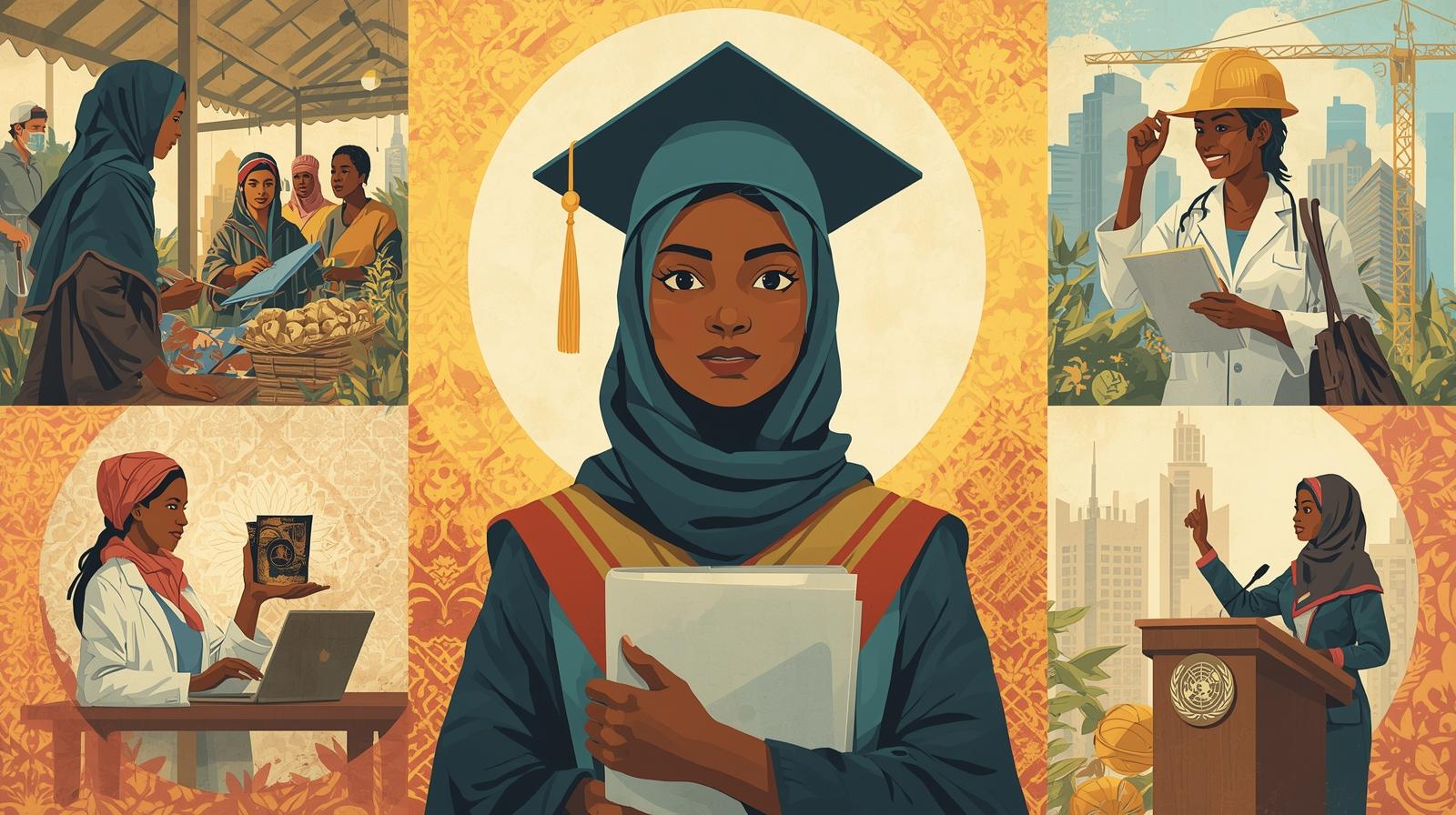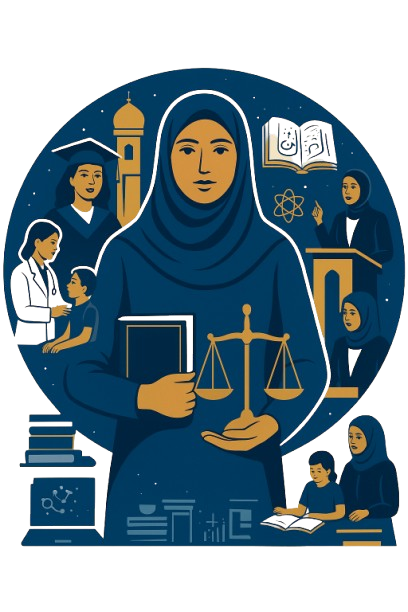Executive Summary
The story of Somalia’s survival and hope is the story of its women and girls. From Hawa Tako, the martyr who gave her life in the struggle for independence, to Aisha Mohamed Ali, who topped the national exams, Somali women have been at the heart of change. They have sold their gold to fund freedom fighters, stood at the frontlines of liberation, and carried families through conflict, droughts, and displacement.
Today, Somali women continue to lead — in parliament, in business, in education, in the diaspora, and in reconciliation. From Ilhan Omar in the U.S. Congress to local women mediators stopping clan clashes, their contribution is profound. Yet, these achievements are still undervalued.
This research calls for a new model: Somalia’s transformation must run through women and girls — especially educated graduates — as the backbone of national renewal.
- Women in Liberation: The Forgotten Foundations
Somali independence was not only won by men in uniform. Women like Hawa Tako, who died during the 1948 protests in Mogadishu, remain symbols of sacrifice. Many women sold their jewelry and dowries to fund the Somali Youth League (SYL) and other liberation movements. Their role is rarely acknowledged, but without them, independence would not have been possible.
- The Diaspora Front: Global Voices of Somali Women
In the diaspora, Somali women have broken barriers and risen to global leadership.
Ilhan Omar, U.S. Congresswoman, represents Somali voices at the highest level of American politics.
Amina Mohamed, Kenyan-Somali, served as Kenya’s Foreign Minister and a UN diplomat.
Countless Somali women in Europe, the Gulf, and North America run businesses, charities, and advocacy groups that channel remittances, humanitarian aid, and political influence back home.
Diaspora women combine cultural resilience with global experience, proving that Somali identity can thrive internationally while supporting national development.
- Women as First Responders in Crises
When disaster strikes — drought, famine, floods, or displacement — Somali women are the first to respond.
- They lead community fundraising.
- They mobilize diaspora support.
- They organize women’s groups to provide food, water, and shelter.
- Local businesswomen often become the safety net for families and villages.
While governments and agencies move slowly, women act immediately, proving their unmatched role in crisis management.
- Custodians of Culture and Heritage
Somali women are also guardians of heritage: poetry, oral storytelling, crafts, and cultural rituals are often preserved by mothers and grandmothers. In safeguarding identity through generations of war and migration, women ensured that Somali culture remains intact.
- Women in Mediation and Reconciliation
In Somali culture, women’s voices carry moral weight. Clan elders and men may lead negotiations, but when women intervene, conflicts often stop. Mothers, sisters, and wives have historically mediated between warring groups, reminding men of their shared bloodlines. Women-led mediation is one of Somalia’s most powerful — yet underutilized — tools for peacebuilding.
- Persistent Challenges
Despite this legacy, Somali women still face major barriers:
- Gender-based violence, FGM/C, and early marriage
- The double burden of careers plus household labor
- Patriarchal stereotypes that miscast women’s leadership as un-Islamic
- Exclusion from formal decision-making despite their informal power
- A New Model of Change: Graduate Girls as National Catalysts
Somalia cannot reach stability and development without fully empowering its majority: women. The most effective model is through educated graduate girls — tomorrow’s teachers, engineers, doctors, entrepreneurs, and politicians.
BRC Somalia proposes:
- 10 graduate women activists from each Federal Member State, trained in leadership, political participation, entrepreneurship, and STEM (science, technology, engineering, mathematics).
- Training rooted in Somali culture and Islamic values, ensuring change is accepted and sustainable.
- Practical mentoring linking these graduates to role models in government, business, and diaspora networks.
- Creating a women-led platform for political participation in upcoming elections, women-led entrepreneurship, and professional leadership in medicine, engineering, and teaching.
- Call to Action
True Somali progress requires collaboration — between government, religious leaders, families, diaspora, and international partners. Women and girls are not a side issue; they are the central solution.
We call on:
- Governments: Invest in education and leadership for girls beyond quotas.
- Religious leaders: Frame women’s empowerment as Islamic duty.
- Communities: Support daughters and wives as leaders, not just caretakers.
- International partners: Collaborate with Somali women-led organizations, not against local culture.
If Somalia is to change for the better, the path runs through its women and girls. Their resilience, vision, and leadership are our true national assets.
Conclusion
From Hawa Tako’s sacrifice to Aisha Mohamed Ali’s academic excellence, from diaspora leaders like Ilhan Omar to women mediators ending clan wars, Somali women have proven themselves as the unshakable pillars of the nation.
The next chapter must institutionalize this reality. Somalia’s renewal depends on graduate girls as the model of change — empowered, trained, and trusted to lead.
BRC Somalia is committed to organizing, training, and empowering women and girls as the foundation of our country’s future. We call for partners to join us in this moral and national mission.
Contact Us








